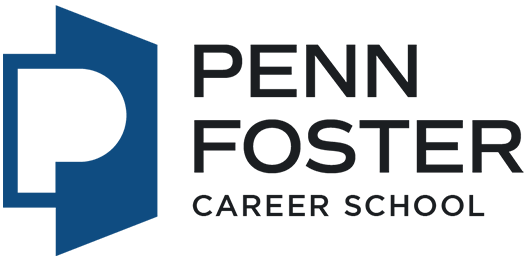Find Your Perfect School
For years, parents, advisors, and other concerned adults instilled in high school graduates that college was the only sure way to success. It causes high school graduates to often mistakenly think a four-year college degree is the automatic next step.
Today, however, college costs have skyrocketed, necessitating substantial federal and private loans. Over 43.4 million Americans are saddled with massive student loan debt. This reality has caused families to reconsider trade school. Furthermore, more than 90% of parents would recommend a vocational career to a student.
Trade schools provide a valuable alternative that should be considered. A trade school is a vocational training institution that teaches technical skills for a specific career. Trade schools shouldn’t be confused with community colleges, which offer two-year, lecture-based instruction.
Trade schools allow students to bypass general education and immediately jump into the hands-on application of course content. Most trade schools confer diplomas and certificates that last one year or shorter.
Their programs are commonly focused on automotive technology, medical billing, cosmetology, food service, massage therapy, paralegal studies, HVAC, and similar trades.
Benefits of Attending a Trade School

Our society depends on skilled tradespeople with the practical training to unclog sinks, fix furnaces, and rewire homes. Trade schools produce technical graduates to enter these in-demand professions. Ziprecruiter.com reports that trades provide a median annual salary of $66,465; however, jobs like electrician, plumber, commercial driver, and web developer pay significantly more.
Trade schools are completed much more quickly to accelerate employment and maximize lifetime earnings. Trade schools, most often, cost a fraction of what college tuition entails, so students can save a bundle.
One of the most significant benefits of trade schools is the variety of programs available and how they can help you get started in your career. Trade schools frequently develop strong relationships with professionals from various industries, allowing them to provide an up-to-date curriculum that meets current market demands. Among the most well-known trade school programs are:
- Automotive Technology
- Building Technology
- Combination Welding
- Industrial Maintenance
- Commercial Truck Driving
- Diesel and Heavy Equipment Repair Technology
- Electrical Technology
- Heavy Equipment Operations
- Machinist Technology
- Motorcycle & Power Equipment Technology
- Refrigeration/AC Technology
These programs not only provide you with the knowledge you need to succeed in your field, but they also prepare you for trades that are always in demand.
Furthermore, because of the way programs are designed at trade schools, you will have numerous opportunities for professional networking. You are being taught by skilled instructors who are professionals in their own right. They can assist you in connecting with others in the area and your specific industry.
As you progress through your chosen program, you will form relationships with your peers. You will get to know your classmates, as well as their strengths and work ethic, by taking hands-on classes. These connections you make in class may come in handy in the future, whether it’s a former classmate helping you land a job or going into business together.
Some trade schools provide job placement assistance programs to assist you in starting your new career. Most trade schools’ job placement assistance programs will teach you interview skills, provide resume tips, and allow you to contact local employers to learn about new hiring opportunities for our graduates. There is so much available to assist you in succeeding!
Drawbacks of Attending a Trade School
While vocational schools have some advantages, they also have significant disadvantages, especially compared to traditional four-year colleges.
What are the disadvantages of attending trade school? One is your education’s limited applicability. A liberal arts degree gives you a little more wiggle room when changing careers — many job postings require degrees in “related” fields.
In contrast, if you become a diesel mechanic, you will most likely find other employment in the automotive industry. If you wanted to switch to electrical engineering, you’d have to start from scratch with your education. As a result, when deciding on a field of study, you should carefully consider your passion.
Another disadvantage of attending trade school is the possibility that future technological advancements will render your certificate obsolete. Before you take a leap of faith, make sure you have thoroughly researched the future projections for your field.
Those who work in the fuel industry, for example, may need to learn new skills as the world shifts to renewable resources. Understand that you will need to continue your education after receiving your degree or certificate to stay current with trends in your field. Some professions require you to do so to keep your license.
Finally, you will forego the traditional college experience. There is no real on-campus culture at trade schools, and social interaction is limited. A four-year college allows you to join clubs, attend campus parties, attend sporting events, participate in Greek life, and live in dorms with strangers who may become your best friends. The college provides wonderful memories for many people and forms long-lasting friendships.
Applying to Trade School Programs
Travel bans, cancellation of in-class sessions, and the shift to online or blended learning due to the COVID-19 pandemic are all having a significant impact on students’ choices and their perceptions of the value of higher education. 55% of college students agreed that higher education was no longer “worth the cost.” This, combined with the fact that the trade and technical school is now $12.9B in the US market size, puts trade schools on a solid footing.
If you decide trade school is your ideal fit, there are several factors to consider before the application process. While trade school may be the best option, asking the wrong things will make everything go downhill. The majority of trade schools have open admissions, so your list of options is voluminous.
- Does the school hold accreditation?
Narrow your choices by checking for national accreditation. Make sure that the trade school you choose is accredited. Accreditation indicates that peers in the industry have reviewed the programs and that the institution meets the accreditor’s standards.
While trade schools aren’t regionally accredited, they can be reviewed by the Accrediting Commission of Career Schools and Colleges (ACCSC). The Accrediting Council for Independent Colleges and Schools (ACICS) is another prominent agency.
Accreditation ensures that your technical training is suitable, industry-recognized, and financial aid-eligible. Ask the trade school’s admission office about retention, job placement, apprenticeships, and class size to aid your decision.
- Does the school own advanced tools and equipment?
Visit the school and look around the grounds. Are the tools and equipment used in training the same as those used on the job? You want to know that you’re learning cutting-edge skills on cutting-edge equipment because you want employers to be competing for your services once you complete your program.
You won’t have much work experience to add to your resume when you graduate. However, if you’re trained in the most cutting-edge tools and techniques, you’ll have an advantage over other job seekers. So look for a school that employs advanced techniques. This way, you’ll leave the program with the most up-to-date knowledge.
- Does the school offer financial aid?
While trade schools may be less expensive options for education, costs will vary by school. This is why comparing school costs is critical before enrolling in a school.
Even if one school is more expensive than another, financial aid may be available. If you can’t afford to continue your education, applying for federal or state financial aid programs may help. Approximately 66 percent of students in the United States apply for federal financial aid. This means that more than half of students require financial assistance to complete their education.
Attending a school that provides financial services or financial aid to its students may offer you funding to help offset some of the program costs, but only if you qualify. When you contact the trade school you want to attend, determine if it participates in federal or state financial aid programs. You can compare different school tuition costs and available financial aid after you apply for any assistance to help you find the best fit for you.
- Is the faculty approachable?
Having a trusted instructor can help you find the best program for you. It can also assist you in deciding whether or not to attend a specific trade school.
One of the simplest ways to learn more about a trade school is to speak with instructors. It is beneficial to meet with instructors while enrolled in a program and before you begin. For example, if you’re touring a trade school, request to meet with instructors from the program you’re interested in. They can assist you in understanding your career, the materials covered in your classes, and mentoring.
- Do they assist you in finding a job?
Trade schools focus on specific industries. One advantage of attending a trade school is that these institutions frequently have relationships with companies needing skilled workers. The best trade schools offer industry partners career services and hands-on training and internship opportunities.
Examples of Accredited Trade Schools
Pima Medical Institute
Pima Medical Institute focuses on allied health professions. This trade school has 16 U.S. locations from Arizona to Montana to offer programs in dental assisting, nursing, pharmacy, phlebotomy, and veterinary.
But this institute is much more than a trade school. They provide life-changing opportunities that transform their students into competent medical professionals capable of meeting the demands of 21st-century employers.
Accreditation:
Penn Foster Career School
This trade school is located in Long Island City and offers 900-hour certificates in pipefitting, welding, air conditioning, and more. A growing number of online trade schools are being established too. Penn delivers diverse diplomas online from carpentry and jewelry design to desktop publishing and dog obedience.
Accreditation:
Lake Area Technical Institute
Lake Area Technical Institute won the 2017 Aspen Prize for Community College Excellence and offers a wide range of trade specializations over two years. They have a high success rate, with 98.56 percent of graduates finding employment or continuing their education after graduating.
Accreditation:
Overall, these trade schools are accredited vocational training centers that give students a head start for success in technical work. There has been an influx of students committing to trade school with enrollment doubling between 1999 and 2016 and continuing to grow today.
Trade schools are becoming a popular alternative for high-skilled talent to enter professions with a labor shortage. A trade school could deliver hands-on training and job placement assistance to reach your goals.
Related Links:



